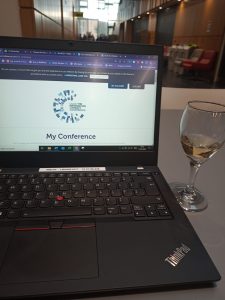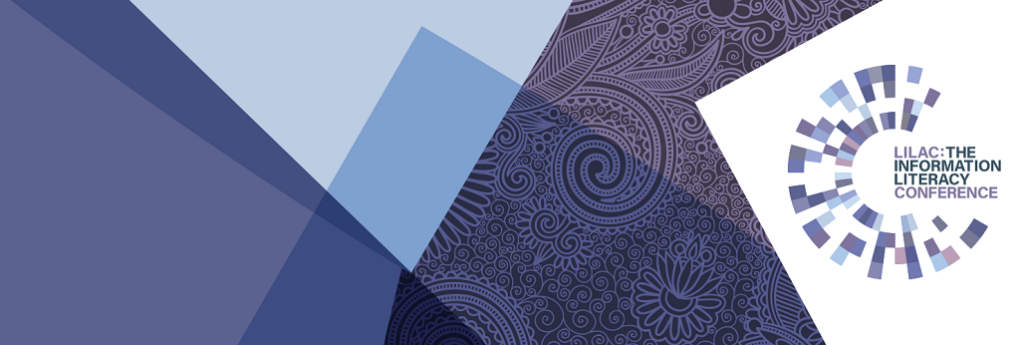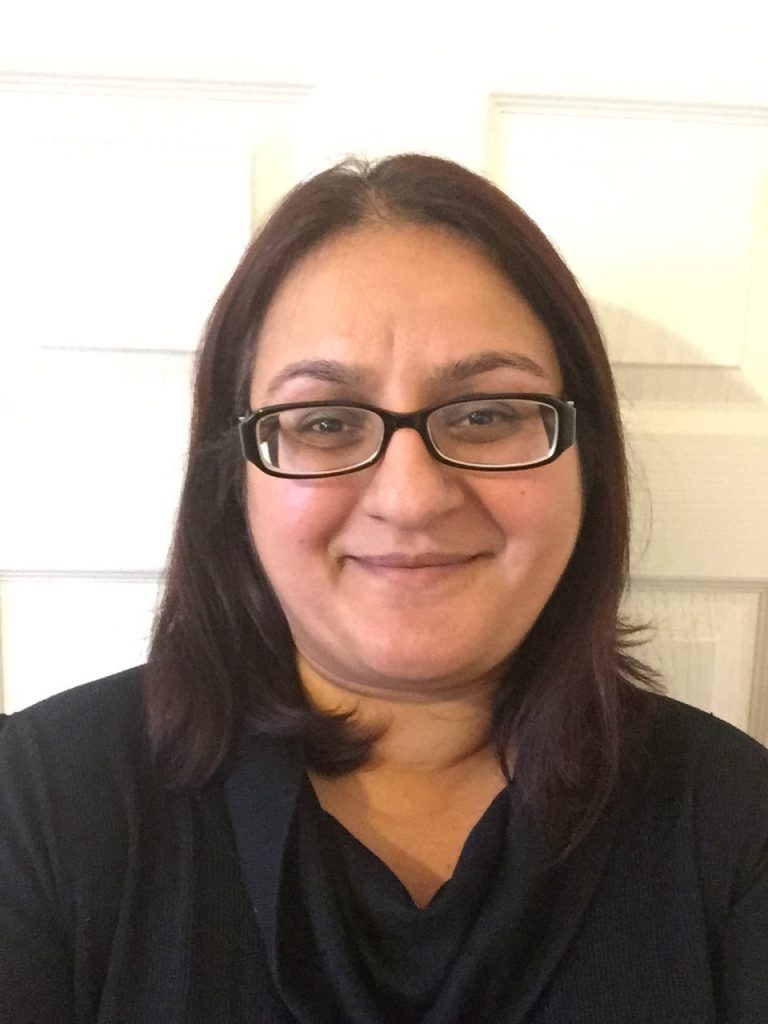Eva Garcia Grau, an Information Consultant at Royal Holloway, University of London, has contributed this post about day one of LILAC 2022.
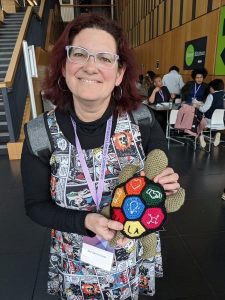
LILAC 2022 is here! It is particularly exciting for me as it is the first time I attend the LILAC conference, but there is general buzz of excitement, tempered by some understandable anxiety as for many of us it is the first big in-person conference for the last two or three years.
This was picked up by Jane Secker, Chair of the Information Literacy Group, who, in her introductory talk, mentioned that being at LILAC can feel scary, anxious and lovely. She encouraged us to enjoy the conference with all our senses.
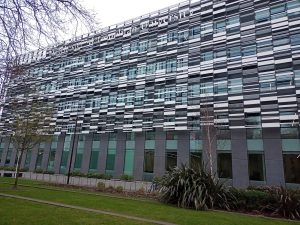
LILAC 2022 is taking place in the wonderful Manchester Metropolitan University and the choice of parallel sessions is incredible.
Ruth Jenkins, from the University of Edinburgh, told us about their successful experience relaunching their 1-to-1 consultations with students, which are now online. It was very well received by students and feedback showed that these sessions had a real impact on their research. Many librarians will sympathise with one of the findings, which was that most students attending 1-to-1 consultations had been encouraged to do so by academics.
Claire Sewell, from the University of Cambridge, introduced their initiative to develop a HEA-accredited teaching and learning course for librarians. As many of us have experienced, LIS qualifications do not always give graduates or postgraduates the tools they need to teach. Indeed, many of them do not cover pedagogical theories at all. Although some institutions offer their own teaching courses, they tend to be geared towards lecturers. At Cambridge they have developed their own course, tailored to librarians needs. It was a fascinating talk and I look forward to hearing more about this project, which is currently going through Advance HE accreditation.
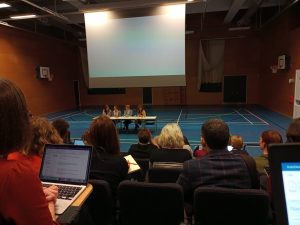
This year, keynote sessions used the principle of flipped learning. Attendees were asked to watch video sessions beforehand and pre-submit questions. The keynote for the first day was by four MMU LIS students (Susan Connor, Ray Smith, Imogen Webb and Rachel Wilding) who, as future new professionals, reflected on the topic of librarian’s wellbeing. Are librarians provided with the right wellbeing tools? Whose responsibility is it to maintain wellbeing? Should it be up to the individual, the professional community or the institution where they work? It was a thought-provoking session and it was interesting to get the perspective from those professionals that are about to enter the profession.
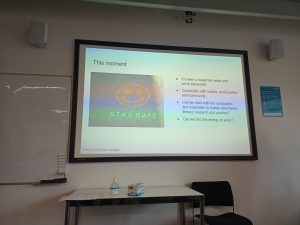
After lunch, Meg Westbury and Alison Hicks, editors of JIL, treated us to a great workshop on how to get your writing groove back. Not only was it full of practical tips on how to get restarted (or started) with your writing, but the opportunity to network with other librarians from other institutions and nationalities was invaluable.
Andrew Walsh’s session on the changes in signature pedagogies for information literacy teaching was thought provoking. It is clear that there has been a shift in pedagogies for IL teaching but, are we applying the new pedagogies?
The concept of theory of change taught in Pam McKinney’s and Sheila Webber’s workshop was intriguing, and it was good to have the time to apply it to a real project. I am looking forward to developing it further once I am back.
My favourite sessions were the practical workshops, as they gave me opportunities to reflect on my teaching but I am so glad that, despite the tiredness of a whole day of conferencing, I attended Ellen Nierenberg’s session on her PhD in information literacy. It is difficult for UK librarians to take sabbaticals and it showed what great things can be achieved when librarians are able to take time off to do research.
All in all, a great first day, which I am now finishing with a glass of wine whilst attending the awards ceremony. I’m looking forward to more great sessions tomorrow!